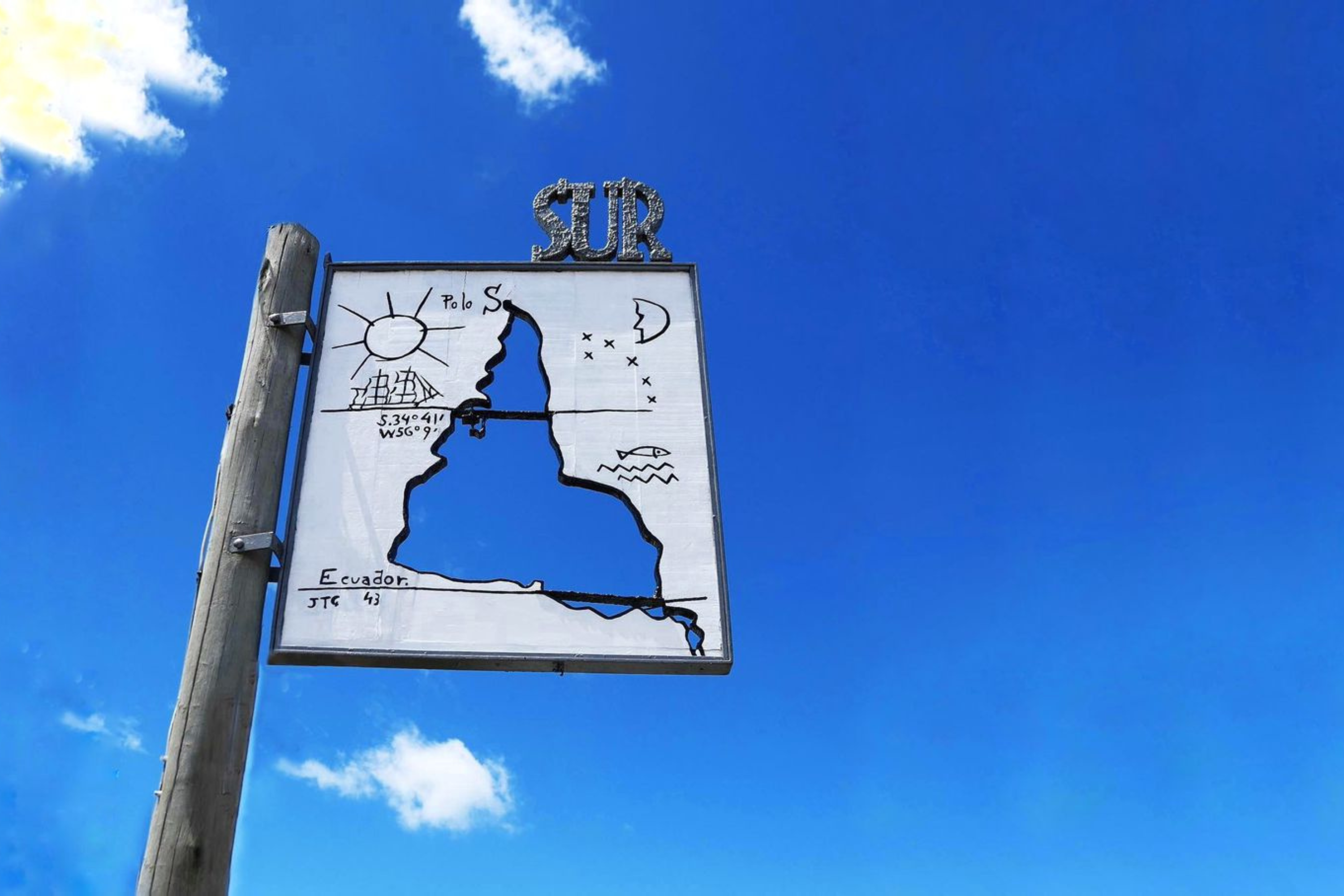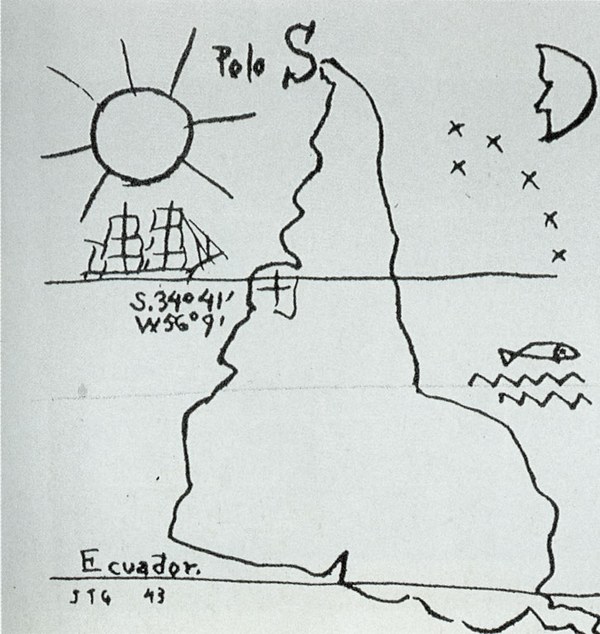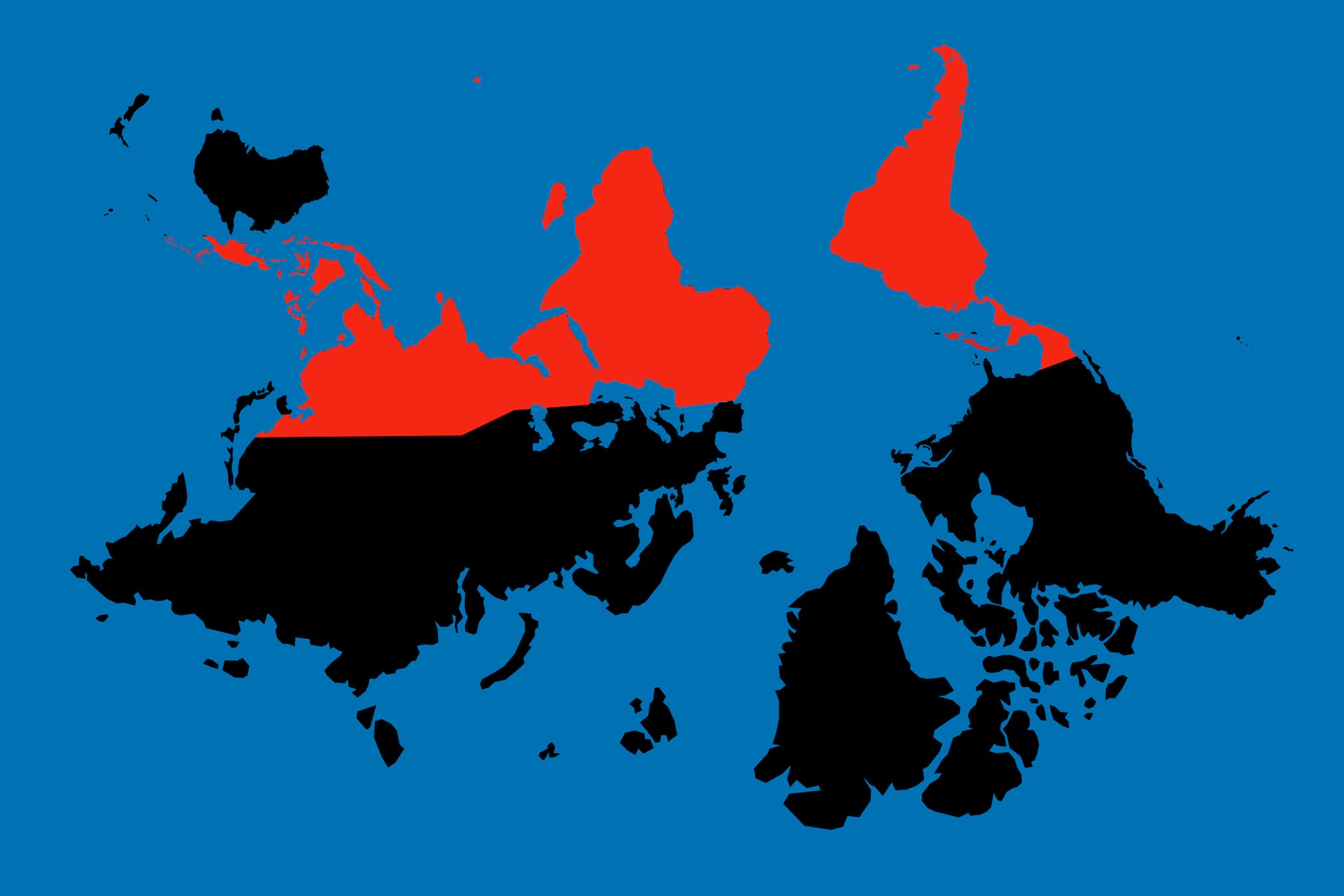Breaking paradigms: Global South leads the debate towards more inclusive development
In a global panorama shaped by geopolitical change, the Brazilian presidency of the G20 represents the rise of Global South countries on the world stage. The concept transcends traditional borders, and highlights shared challenges and the struggle for more inclusive international cooperation. Following a sequence of presidencies from Global South countries, the G20 is called upon to address critical and urgent issues such as development, climate change, multilateralism, debt and the redefinition of international relations.

Brasil’s President Luiz Inácio Lula da Silva said—during the 2nd Voices of the Global South summit in November 2023—that “being here reminded me of a very famous work by the Uruguayan artist Joaquín Torres García, called ‘Inverted America’”. “He portrayed South America upside down. He placed the Southern Cone—which tends to appear distorted on traditional maps—at the top of the image, and the North at the bottom. In this way, he demonstrated how, without reflecting, we often adopt other people's points of view, and they do us no favors.”
To the Brazilian president, "our countries have already been called the Third World and developing countries”. “There are those who question the concept of the Global South, saying that we are too diverse to fit into it—but there are many more interests that unite us than differences that separate us,” he said.
The term Global South arose from geopolitical and economic discussions that classify nations based on their socioeconomic development.
The expression refers to countries in the Southern Hemisphere, many of which are considered developing or emerging—but not only that. Beyond geographic limits, the concept highlights global disparities, highlighting challenges shared by these nations, such as economic, social and environmental issues.
The Global South works towards promoting a more comprehensive understanding of the realities faced by these regions, transcending traditional borders and focusing on international cooperation to address common challenges. By recognizing their shared identity and challenging established patterns, this group of countries calls for a collective response to the complexities of debt and development.
To Professor Sachin Chaturvedi, General Director of the Indian NGO Research and Information System for Developing Countries (RIS), “in the current geopolitical scenario, the Global South has emerged as a new voice defending a fairer, more equitable and inclusive world order. The unprecedented collective efforts of these countries have brought development issues to center stage, participating in various multilateral forums and groups such as the United Nations, World Trade Organization, International Monetary Fund, BRICS and G20. The Global South is raising its voice in a more assertive and united way, given the severity of the challenges they face and the crises of collective action.”

Chaturvedi believes that “over the last two decades the Global South has emerged as the engine of global growth, and this is welcome from the perspective of addressing long-standing gaps in development and capability recognition.” To the professor, “right now, there is growing leadership from the Global South to work towards inclusive and sustainable global action through broader partnerships and non-exclusive approaches.”
Global South replaces the old concept of Third World
The concept has its roots in discussions about development and global inequalities and emerged as an alternative to the traditional Third World, striving for a less hierarchical and more inclusive approach. This paradigm shift has the potential to create a more resilient and collaborative network on critical issues such as security, health and international trade.
André de Mello e Souza, head of the Policy Center for Inclusive Development at Brasil’s Institute for Applied Economic Research (Centro de Políticas para o Desenvolvimento Inclusivo/Instituto de Pesquisa Econômica Aplicada/Ipea), believes that “we have, for the first time, since the creation of the G20, a succession of presidencies from developing countries.” “There was Indonesia in 2022, India in 2023, this year Brasil and next year South Africa, which offers an opportunity to articulate and try to influence the global agenda in a way that favors the interests of these countries, according to their own vision of development.”
To Mello e Souza, this is an important opportunity, because these countries have increasingly been assertive in proposing different ways of facing problems and promoting development. The researcher believes that the group has “its own agenda, which is not necessarily the same as the agenda of high-income Northern countries. When it comes to global challenges or the need to provide global public goods, there are differences.”
These countries can claim a greater voice in multilateral institutions, “as the BRICS have done, and with greater success, especially in international financial institutions, such as the IMF. We can include on this agenda terms of finance, mechanisms for taxation or prevention of illicit financial flows internationally, combating tax havens and a greater transfer of resources for the purpose of development.”
The challenge of countries’ debts

From an economic perspective, we can observe sustained growth in several regions of the Global South. Innovative policies, strategic investments and a growing middle class have driven economic development. Challenges such as internal inequalities, political instability and dependence on commodities remain obstacles to be overcome to ensure inclusive and sustainable growth.
The World Bank's annual report highlights the growing pressure on countries in the Global South due to higher interest rates and reduced new financing. The combination of these factors results in a notable increase in debt service, exceeding 443 billion dollars annually. Mozambique, for example, dedicates 37% of its economy to external debt.
The effects of excessive debt are not limited to the financial arena. The cost of debt compromises investments in education, health and infrastructure, negatively impacting social progress. The energy transition is also at risk, due to the lack of resources, compromising climate objectives and causing devastating global consequences.
Faced with these challenges, President Lula's reflection is even more relevant. The warning is clear: if support and surveillance measures are not taken, the growing debt burden in the Global South could affect the entire financial system, reiterating the importance of a global approach to face this reality.